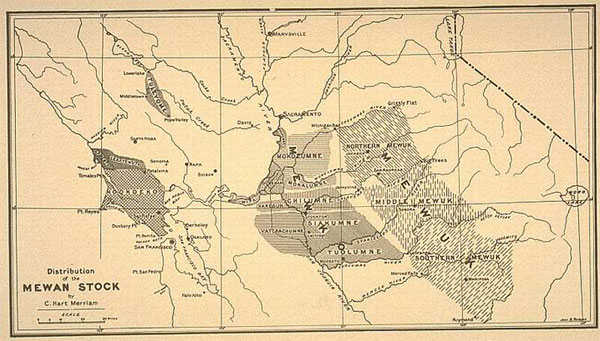
For me the inadvertent climax of the book [Discovery of the Yosemite ], the passage that haunted me, was a scene at Lake Tenaya, after the old Chief and his people had been captured, just before they were marched to the flatlands of the San Joaquin Valley to live on a reservation. The passage runs, "When Ten-ie-ya reached the summit, he left his people and approached where the captain and a few of us were halting.... I called him up to us, and told him that we had given his name to the lake and river. At first he seemed unable to comprehend our purpose, and pointing to the group of glistening peaks, near the head of the lake, said 'It already has a name; we call it Py-we-ack.' Upon my telling him that we had named it Ten-ie-ya, because it was upon the shores of the lake that we had found his people, who would never return to it to live, his countenance fell and he at once left our group and joined his family circle. His countenance indicated that he thought the naming of the lake no equivalent for his loss of territory."
Usually annihilating a culture and romanticizing it are done separately, but [Lafayette] Bunnell neatly compresses two stages of historical change into one conversation. Bunnell says, in effect, that there is no room for these people in the present, but they will become a decorative past for someone else's future. (219-220)
Savage Dreams (1994)
Rebecca Solnit
Discovery of the Yosemite (1880)
Lafayette Bunnell